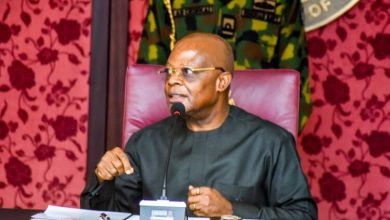As part of efforts aimed at increasing the inclusion of women in Governance, an advocacy project initiated by Stakeholders Democracy Network, SDN, in partnership with Nigeria Women’s Trust Fund, NWTF, with funding from the Open Society Initiative for West Africa, OSIWA, has revealed startling revelations following a recent survey conducted in three Niger Delta States.
A press statement made available to Africa Update by Florence Kayemba, on the report reads: Across Akwa Ibom, Bayelsa and Rivers States, just 17% of candidates standing in the 2019 State House of Assembly and National Assembly elections were women.
Worse still, only 7% of those subsequently elected were women. With 106 men elected vs 8 women, by far the biggest winners and losers of the 2019 elections were not divided by party political lines, but by gender.
“The situation in the Niger Delta reflects the national picture, where only 6% of those elected in to the National Assembly were women.Context:As political parties accused one another of election fraud and violence, and observers cast doubt over the credibility of the 2019 elections, very little attention was paid to one of the most concerning aspects of the election—the stark inequality between women and men standing for candidacy and elected to office.
A new report released by SDN, focusing on three Niger Delta states, finds the main reason for this inequality is down to societal expectations that women should fulfill domestic roles, while men are seen as responsible for decision-making and taking on positions of leadership.
These expectations are based on negative stereotypes about women, rather than any relevant differences between women and men.
“Women are not allowed to make decisions; they are consciously denied the role of decision making even now.”—women activist from the Niger Delta interviewed for SDN’s report.
This is a problem because those expectations can result in women being disadvantaged in contesting and winning elections—such as those in 2019—through a lack of family support, lack of financial means/support, sexual harassment, and late night party meetings, to which women are rarely invited.
“Political parties need to make concrete commitments to reducing barriers the discriminate against women candidates, such as holding meetings earlier instead of late at night”—Flora, Project Lead,SDN While the above situation is also true across Nigeria, women in the Niger Delta face additional challenges, for example, being deterred by the high levels of violence that can accompany elections.
The 2019 elections also represent another dismal failure of government to arrive anywhere close to its own target of 35% of elected positions held by women, as adopted within Nigeria’s National Gender Policy, 2008. Government needs to make concrete commitments, and together with political parties and non-governmental organisations, do more to reduce barriers to achieving a more equal balance between men and women contesting, and winning, Nigeria’s next elections”.
At the end of the stakeholders meeting which held at Elkan Terrace in Rivers State, on February 6, 2020, and had in attendance female politicians from Major political parties in the state, the State Director of the National Orientation Agency, Bar. Tamuno, newspaper publishers, journalists and NGOs, it was resolved that people living with disabilities should also be given leadership positions not because of their disabilities but for their intellectual capacity and skills.










